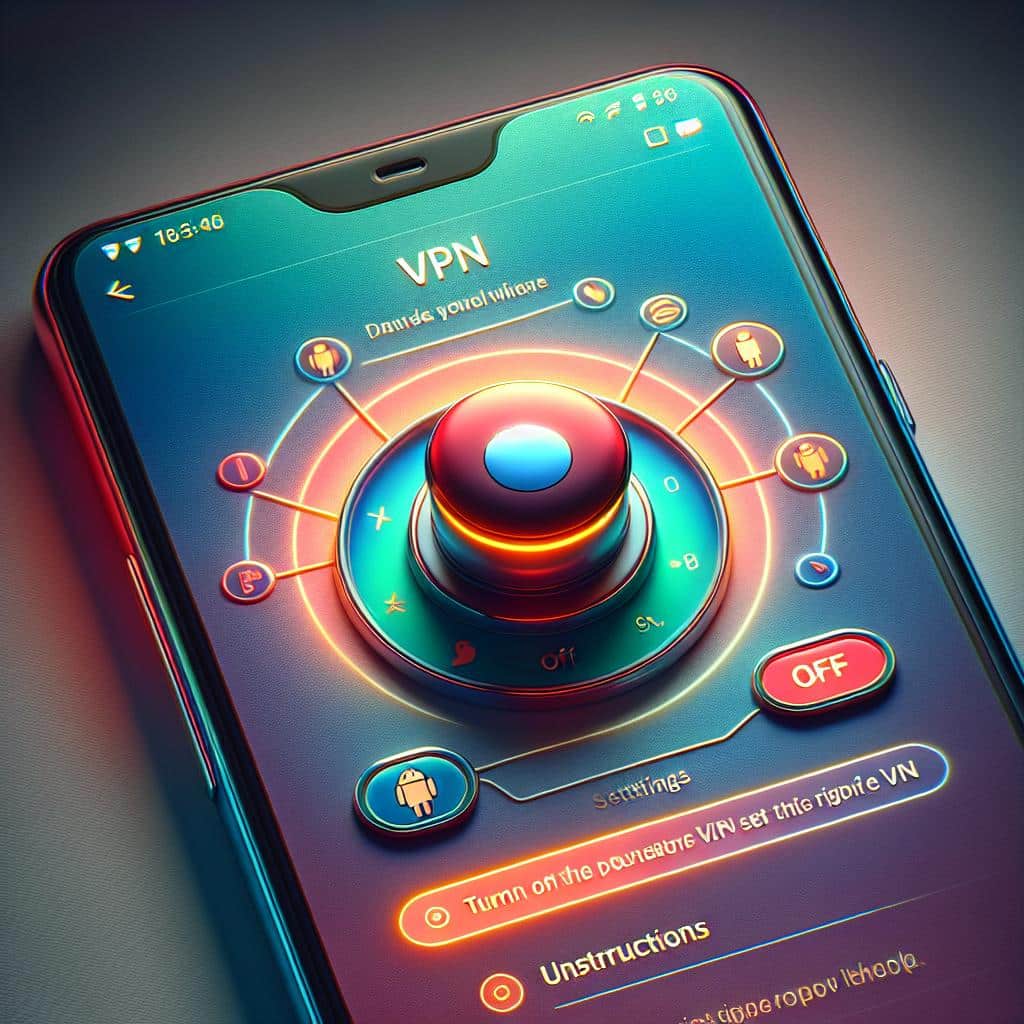Virtual Private Networks (VPNs) are essential tools for enhancing online privacy, protecting your data, and accessing restricted content. However, there may be instances when you need to disable your VPN on an Android device, whether to increase speed, access local services, or save battery life. This guide will walk you through several methods to turn off your VPN on Android, ensuring you can manage your privacy settings with ease.
Understanding VPNs on Android
What is a VPN?
A VPN, or Virtual Private Network, creates a secure, encrypted connection between your device and the internet. This not only protects your data from hackers and surveillance but also masks your IP address, giving you more privacy online. VPNs are especially useful when using public Wi-Fi networks, which are often vulnerable to security breaches.
However, while VPNs are beneficial for security, there are situations where turning them off is necessary. For instance, VPNs can sometimes slow down your internet connection, interfere with local content access, or drain your battery more quickly.
Why Turn Off Your VPN?
There are several reasons why you might want to disable your VPN on Android:
- Improved Speed: VPN encryption can slow down your internet connection. Disabling the VPN may speed up your browsing experience.
- Access to Local Content: Some apps or websites may block access when a VPN is active due to IP masking. Disabling the VPN allows you to access content available in your current location.
- Battery Conservation: Running a VPN continuously can consume more power, so turning it off can help save battery life.
How to Turn Off VPN on Android
Disabling a VPN on Android can be done in multiple ways depending on your setup. Below are the primary methods:
Method 1: Through the VPN App
Most VPNs are managed through their dedicated applications, making it easy to disconnect when needed.
- Open the VPN App: Locate the VPN app icon on your home screen or app drawer.
- Disconnect: Once the app is open, look for a ‘Disconnect’ or ‘Stop’ button. Tap on this button to turn off the VPN.
- Confirmation: Some VPN apps may ask for confirmation before disconnecting. If prompted, confirm your choice.
Tip: If you plan to turn off your VPN temporarily, this method is quick and easy, allowing you to reconnect when needed.
Method 2: Using Android Settings
If you prefer to manage your VPN connection through Android’s settings, follow these steps:
- Open Settings: Tap on the ‘Settings’ icon on your Android device.
- Network & Internet: Scroll down and select ‘Network & Internet’ or ‘Connections,’ depending on your Android version.
- VPN: Tap on the ‘VPN’ option. This will display a list of active VPN connections.
- Disconnect or Forget: Select the active VPN connection and tap ‘Disconnect.’ If you want to remove the VPN configuration entirely, choose ‘Forget.’
Tip: This method is ideal if you want to manage all your network settings in one place or if you’re using a VPN that’s configured manually.
Method 3: Disable VPN from Quick Settings
For a fast and convenient way to disable your VPN, use the Quick Settings panel:
- Swipe Down: Swipe down from the top of your screen to access the Quick Settings panel.
- Locate the VPN Icon: If your VPN is active, you should see a VPN icon in this panel.
- Tap to Disconnect: Tap the VPN icon, and it will toggle off, disconnecting the VPN.
Tip: This method is the quickest way to turn off your VPN without navigating through multiple settings.
Visual Guide
If you prefer step-by-step visuals, many online tutorials provide images and videos to help you disable your VPN. You can check out this detailed guide on How to Disable VPN on Android.
Troubleshooting Common Issues
Sometimes, turning off your VPN might not work as smoothly as expected. Below are some common issues and their solutions:
| Issue | Solution |
|---|---|
| VPN Remains Connected | Restart your device and attempt to disconnect again. This can resolve any temporary glitches. |
| Inability to Access VPN Settings | Ensure your device isn’t locked by a work profile or other restrictions that might block access to VPN settings. |
| Apps Still Acting as if VPN is Active | Clear the app cache for affected apps or restart them to refresh their connection settings. |
Tip: If you continue to face issues, consider updating your VPN app or contacting the provider’s customer support for assistance.
My Opinion
Turning off a VPN on your Android device is a simple process that can be done through the app, settings, or quick settings. By understanding when and why to disable your VPN, you can optimize both your security and internet performance. Remember, while VPNs are crucial for protecting your privacy, knowing when to turn them off can enhance your browsing experience, especially when you need faster speeds or local content access.
Related Themes to Explore
- Unlocking Freedom: An In-Depth Look at Unite VPN
- Discover the Best Free VPNs on Reddit: Your Ultimate Guide
- No Lag VPN: Ensuring Smooth and Fast Connections
By diving deeper into these topics, you can further enhance your understanding of online security and privacy management, ensuring you stay protected in the digital age.

